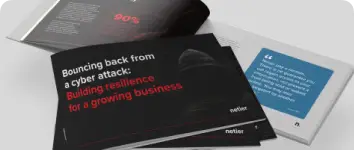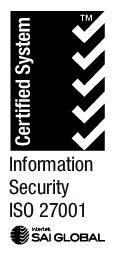
Discover the A-Z of common scams and cyber threats, from Advanced Fee Fraud to Zero-Day Vulnerabilities. Learn how to protect your business from these risks.
A is for Advanced Fee Fraud: Scammers ask victims to pay a fee upfront with the promise of a larger payout, but the promised payout never materialises.
B is for Business Email Compromise (BEC): Scammers impersonate executives or business contacts to trick employees into transferring funds or sensitive information.
C is for Credential Theft: Cybercriminals steal usernames and passwords to gain unauthorised access to accounts or systems.
D is for DDoS (Distributed Denial of Service) Attacks: Attackers flood a network or website with excessive traffic, making it unavailable.
E is for Email Spoofing: Scammers forge email addresses to appear as though they come from a legitimate source, often using them in phishing attacks.
F is for Fake Antivirus Software: Scammers trick users into downloading and paying for fake antivirus software, which is actually malware.
G is for Gift Card Scams: Scammers request payment via gift cards, claiming they’re owed money or providing a service.
H is for Hacking: Cybercriminals gain unauthorised access to computer systems, networks, or accounts.
I is for Impersonation: Scammers pretend to be someone else, often using social engineering to deceive individuals or organisations.
J is for Job Scams: Fraudulent job postings or work-from-home offers aimed at stealing personal information or money.
K is for Keyloggers: Malware that records keystrokes on a computer, capturing sensitive information like passwords.
L is for Lottery Scams: Victims are told they’ve won a lottery but must pay fees or provide personal information to claim the prize.
M is for Malware: Malicious software that includes viruses, worms, spyware, and ransomware, among others.
N is for Nigerian Prince Scam: A classic scam where the scammer poses as a wealthy individual seeking help to transfer a large sum of money.
O is for Online Auction Fraud: Scammers deceive buyers or sellers on online marketplaces, taking payments without delivering goods.
P is for Phishing: Cybercriminals use fake emails, websites, or messages to trick users into revealing sensitive information.
Q is for QR Code Scams: Scammers replace legitimate QR codes with malicious ones that lead to phishing sites or malware downloads.
R is for Ransomware: Malware that encrypts a victim’s data, demanding a ransom for the decryption key.
S is for Social Engineering: Manipulating individuals into revealing confidential information, often through psychological tactics.
T is for Tech Support Scams: Scammers pose as tech support agents and claim to fix non-existent computer issues for a fee.
U is for Unauthorised Access: Gaining unauthorised entry to a system, network, or account.
V is for Vishing (Voice Phishing): Scammers use phone calls to trick individuals into revealing personal or financial information.
W is for Wire Fraud: Scammers trick individuals or businesses into making fraudulent wire transfers.
X is for XSS (Cross-Site Scripting): An attack where malicious scripts are injected into web pages viewed by other users.
Y is for Yield Farming Scams: Associated with cryptocurrency, scammers promise high returns but lead to financial losses.
Z is for Zero-Day Vulnerabilities: Exploiting software vulnerabilities that are unknown to the developer or not yet patched.
Protect Your Business
Don’t let your business fall victim to these risks. Contact us today to fortify your defences and ensure your business stays protected. Get in touch now to safeguard your business from every angle.




